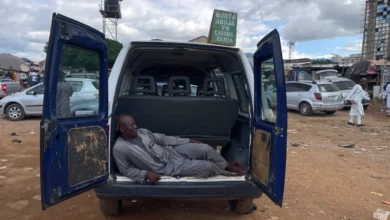September 10 is World Suicide Prevention Day, a day not widely celebrated or even known about, which reflects the uphill struggle faced by those trying to promote the aims of the campaign.
According to statistics compiled by the UN's World Health Organization (WHO), every year approximately one million people worldwide commit suicide–almost one death every 40 seconds. Suicide rates are reported to be rising steadily in developing countries, primarily amongst those between the ages of 15 and 44. WHO reports that for every death there are around 20 other people who will have attempted suicide. Its projections indicate that the number of suicides may rise to 1.5 million annually by the year 2020.
According to undefined estimates provided by WHO's Suicide Prevention Program, Japan, Russia, Ukraine, South Korea, and much of Northern Europe, reported suicide rates of over 13 per 100,000 people. The former Soviet Republics of Lithuania, Belarus, and Kazakhstan reported the world's highest reported suicide rates. Jordan reportedly has the lowest rate of suicide in the Arab World, and one of the lowest worldwide.
As for Egypt, it is reported to have an annual suicide rate of less than 6.5 per 100,000–or fewer than 5070 deaths by suicide each year. Exactly how many Egyptians do commit suicide each year? Estimates are available, but there are no definitive statistics.
According to a report published in a leading state-owned newspaper (June 2010 ) which cited numbers issued by a government body, the Central Agency for Public Mobilization And Statistics, a total of 1160 suicides were reported in the year 2005, followed by 2355 in 2006, with the number rising to 3700 in 2007. In 2008 approximately 4000 Egyptians took their own lives, while 50,000 attempted suicides were reported in the same year. In 2009 an estimated 5000 Egyptians killed themselves–and another 104,000 suicide attempts were reported. The report does not include a breakdown of the numbers by age or gender.
These statistics are particularly shocking in comparison to those issued by the Egyptian state in 1987. Only a quarter of a century ago, Egypt officially registered an annual suicide rate of 0.1 out of 100,000–all males: No females reportedly took their own lives. According to the demographics of that time, this translates to around just 24 deaths through suicide each year.
Commenting on these numbers, Dr. Mohamed Rakha, a psychiatric physician at Abbasiya Hospital for Mental Illness said these statistics are plausible. He explained that psychiatric doctors have noted an increased rate of suicides. “Medical studies indicate a definite increase in the number of people contemplating suicide over the past few years, and we are personally dealing with more people who have attempted suicide. But we are a long way from having a complete picture of Egypt's suicide problem.”
According to Rakha, there are no precise statistics available because many cases of suicide are not officially documented. “Very often families of suicide victims seek to cover-up, or to avoid mentioning that a family member has taken their own life.” He added that there are serious moral and religious stigmas involved: “Families do not want people to remember that their son or daughter died as a so-called apostate. Covering up a suicide is often perceived as the only way to preserve the reputation of the deceased, and the reputation of the family.”
Rakha says that “more than ten percent of those suffering from depression contemplate suicide, in one way or another.” But it's not only depression that spurs people into committing suicide. There are a number of other mental health problems which could prompt thoughts of suicide, such as schizophrenia–which may manifest itself as self-destructive voices heard in one's mind telling the sufferer to harm or kill themselves. “Other mental conditions that, if left untreated, may lead to suicide include obsessive-compulsive disorder, alcoholism, and drug addiction. These psychological problems may lead to chemical imbalances, panic attacks, behavioral disturbances, and reckless driving–all of which may lead to intentional or unintentional death."
According to Rakha, most deaths by suicide are typically preceded by several failed attempts. He also argues that weaker societal bonds, along with pressures of all sorts–whether educational, political, social, financial, professional, familial, personal and/or emotional–may lead people to contemplate suicide.
A WHO news bulletins entitled “Choosing to Die–a Growing Epidemic among the Young” says that Islamic countries tend to have some of the lowest suicide rates in the world, and while the figures may sometimes be low because death certificates avoid mentioning suicide, some researchers believe they are largely genuine. According to WHO, Iran, for example, had 0.3 suicides per 100,000 men and 0.1 per 100,000 women in 1991, the latest year for which figures are available.
An official from the Ministry of Health, who withheld his name because he is not authorized to speak to the media, told Al-Masry Al-Youm, "The data pertaining to the annual numbers of suicides cannot be verified. There are numerous reasons–religious, cultural, and societal–why information about suicides is kept hidden." The official went on to say, "Suicides and suicide attempts throughout the Arab World are under reported. The statistics available do not reflect the reality or the magnitude of this massive problem."
Film-maker Maggie Morgan examined this issue in her 2009 documentary “Village Suicides.” Her field study and film revolves around Mair, a predominantly Coptic village near the city of Assiut, in Upper Egypt. In this marginalized village with a population of 10,000, Morgan documented 45 deaths by suicide during the year 2008 alone. According to the filmmaker, "There are hardly any jobs in Mair. There is no industry, no entertainment, and an extremely rigid structure of social, religious, and familial control." Numerous villagers attempt to escape these confines and travel abroad for work or immigration–generally either to the Arab Gulf or the United States.
Those who find themselves unable to leave have frequently resorted to ending their lives by swallowing a pill–intended for use as an agricultural insecticide. "The poison is extremely lethal and fast-acting. One pill can kill in less than half an hour." Morgan added that authorities recently moved to ban the sale of this insecticide, in its tablet form, when it was discovered that people were using it to commit suicide.
Cases of suicide, and suicide attempts, are increasingly covered in local newspapers. Suicides have been reported amongst Christians and Muslims, singles and married people, teachers and students, the employed and those without work, staff and bosses. An international press report mentioned that Egypt's National Center for Toxins has registered approximately 2700 attempted suicides committed by single women in 2009 alone.




